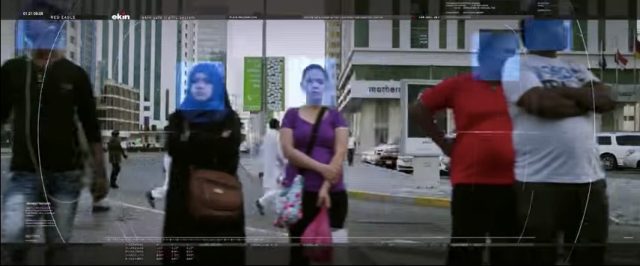
If the "Ekin Patrol" catches on in the United States, it will facilitate a notable acceleration in the advancement of spy tech. While speedometers are relatively old and LPRs are increasingly catching on, facial recognition technology is not yet widespread in America. Agencies ranging from the FBI to the California attorney general's office have expressed their interest in the technology.
"The facial recognition equivalent of license plate reader scanning has always been a civil liberties nightmare," Jay Stanley, an analyst at the American Civil Liberties Union, told Ars. "We’ve definitely seen baby steps in that direction, but this technology, if widely deployed, would mean it’s arrived."
To justify LPRs, American law enforcement agencies have relied on the 1983 Supreme Court case, United States v. Knotts, which famously held that "a person traveling in an automobile on public thoroughfares has no reasonable expectation of privacy in his movements from one place to another." It's likely that such agencies would rely on Knotts when using facial recognition technology on a wide scale as well, but it could take years for the Supreme Court to rule on the issue.
A promotional video from Abu Dhabi published last fall demonstrates a souped-up, Hollywood-style imagining of what such advanced police surveillance could look like using the Ekin Patrol. As it passes bystanders on the street, the camera quickly scans their faces.
Legal questions abound
It’s not clear whether such blanket facial recognition technology would stand up to judicial scrutiny in the US."It absolutely raises some very substantial privacy concerns," Stephen Henderson, a law professor at the University of Oklahoma, told Ars.
"As for its constitutionality, it isn’t easy to say. According to five justices in Jones, despite there typically being no reasonable expectation of privacy in a public location because it is disclosed to all who care to see, we do retain a reasonable expectation of privacy in our ‘longer term’ movements because those are not typically captured. So, what will be done with the gathered information in this case? If it is used to track movements over time, then it sounds like Jones."
Indeed, Dave Maass, a researcher at the Electronic Frontier Foundation, similarly remains concerned that if this tech does come stateside, police agencies will be all too happy to deploy it without thinking through the consequences first.
"No police department should be testing this without having a hard policy in place and going through the governing body," he said by e-mail. "Under what circumstances can the police use it, when do they delete it, can anybody see it or must you have reasonable suspicion? But it raises different privacy issues because you have a choice whether you’re going to drive or not. Having a car is a privilege, but everyone has a face and people shouldn't have to worry about being tracked simply because they step outside. If I was a police officer, I would be concerned about my whereabouts being put into a database."
Is the US next?
But Akif Ekin, the founder of Ekin Technology, told Ars that the Ekin Patrol’s facial recognition feature is only being tested in a small percentage of agencies in various pilot locations. Plus, he admitted it’s not perfect."The system will suggest to you that it might be this person, but you should not expect it to work like a passport system," he said.
Plus, he said the company will only activate the facial recognition capability if the relevant law enforcement agency says that it is legal in that jurisdiction.
Ekin Patrol has been available in Europe for about a year as well as Turkey and neighboring Azerbaijan. The entrepreneur hopes to expand to Iran in the future. Each installation, Ekin said, costs between $20,000 and $50,000 depending on the options. He'll be demonstrating it at an upcoming police conference in San Diego this fall.
When Ars raised the privacy issue with Ekin, he said he was sympathetic. But Turkey neighbors an active war zone, he pointed out, and the threat of domestic terrorism means the calculus isn't the same as in the US.
"Unfortunately these days the concern is safety over privacy—I have to tell you honestly, in Turkey nobody cares," he said. "Privately I don't like it, but that's a fact that we have to live with."
reader comments
88